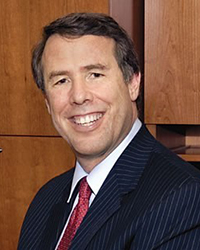Interested in Psychiatry?
Even during the COVID-19 pandemic, we’ve continued to develop novel telehealth platforms to assess older adult participants in our many National Institutes of Health (NIH) studies and Florida Department of Health (FDOH) projects. These platforms have allowed us to improve access and convenience for patients and will enhance our patients’ experience well beyond the pandemic. Working remotely, our investigators submitted and published an unprecedented number of scientific papers and funding proposals. We’ve continued to nurture our post-doctoral fellows and new generations of trainees devoted to studying the normal and abnormal brain, aging, maintaining brain health, and early detection of conditions like Alzheimer’s disease and related disorders.
Our dedicated team has developed innovative instruments and tools adopted by research groups worldwide, including the Loewenstein and Acevedo Scales for Semantic Interference and Learning (LASSI-L) measure. Papers published in leading scientific journals have shown how our cognitive paradigms are sensitive to numerous brain biomarkers that signal the earliest stages of Alzheimer’s disease.
Our faculty has received unprecedented NIH federal grant support and state grant support totaling more than $15 million over the next several years. The CNSA was also invited to lead the University of Miami’s efforts in the 1Florida Alzheimer’s Disease Research Center (ADRC) – one of just 31 NIH-designated Centers of Excellence. I’m honored to serve as the principal investigator of the University of Miami site and associate director of the center. It’s my honor and privilege to work with our talented, dedicated faculty and staff. Through their hard work, we’re making a difference – including several prestigious R01 grants.
- Dr. Rosie Curiel Cid, chief of Cross-Cultural Neuropsychology and Neuroscience and 1Florida ADRC director of outreach and retention, received an R01 grant on computerized cognitive stress tests that can identify the first changes that occur in Alzheimer’s disease. She and her team have also made great strides in recruitment and outreach of underrepresented diverse ethnic and cultural groups in aging and Alzheimer’s research.
- Dr. Elizabeth Crocco, chief of Geriatric Psychiatry and medical director of the CNSA and UM Memory Disorders Clinic – the only state-funded clinic at UM – continues to expand research into Alzheimer’s disease and neurocognitive and neuropsychiatric conditions.
Our research managers, coordinators, recruiters, research assistants, and biostatisticians all contribute to the synergy and productivity of the CNSA and its mission to serve our increasingly older adult populations. These outstanding individuals, our extraordinary faculty, and our committed staff dedicate every day to making the CNSA a hub for early detection and treatment of Alzheimer’s disease and memory disorders. They make it possible for us to provide innovative programs for care providers. Together, we’re creating an environment where we’re training the next generation of leaders in the field.
Our success is the result of a team effort, thanks to the Department of Psychiatry and Behavioral Sciences and our many university partners. They’ve supported our mission to become a leader in cognitive neuroscience and enhance our knowledge of normal aging and neurodegenerative diseases in the brain. We aspire to be a destination center for those with Alzheimer’s disease and other neurodegenerative disorders.
As I look toward the future, I’m passionate about our continued pursuit of novel opportunities to transform the landscape of cognitive neuroscience and aging – and the breakthroughs yet to be discovered by our future clinician-scientists.

